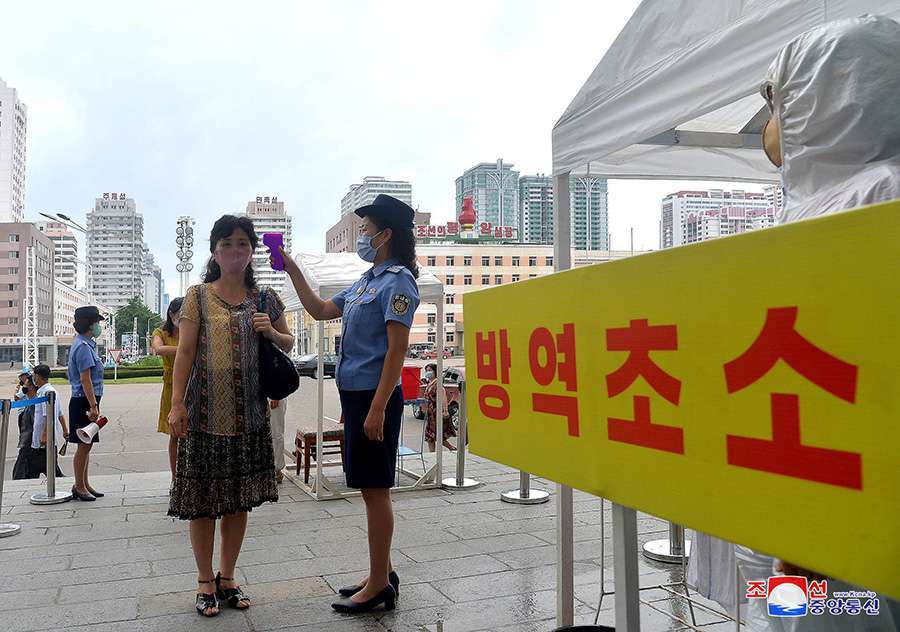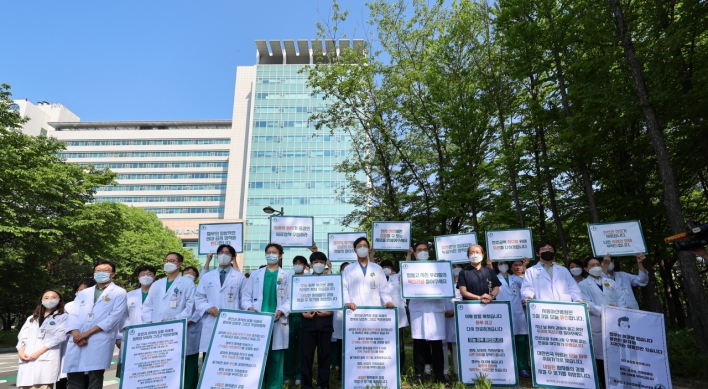NK has world’s 5th highest rate of tuberculosis cases
By Kim So-hyunPublished : Oct. 15, 2020 - 13:56

North Korea had the fifth-highest incidence of tuberculosis per 100,000 people among the 198 countries studied by the World Health Organization last year.
The estimated epidemiological burden of tuberculosis per population of 100,000 in 2019 was 513 for North Korea, according to the WHO’s annual tuberculosis report published on Wednesday.
Only Lesotho (645), South Africa (615), Philippines (554) and the Central African Republic (540) had higher incidences of the disease.
The average figure for the 30 high TB burden countries was 177.
North Korea had about 132,000 TB patients as of last year, and 5,200 of them had multidrug-resistant TB that is resistant to the two most effective anti-TB drugs.
TB, which generally affects the lungs, is spread through air when people who have active TB in their lungs cough, spit, speak or sneeze.
People with weakened immune systems due to malnutrition or chronic illnesses are particularly prone to tuberculosis.
According to the WHO report, 48 percent of the North Korean population was undernourished, marking the third highest rate among the 30 high TB burden countries, after the Central African Republic (60 percent) and Zimbabwe (51 percent).
This year, the COVID-19 crisis is negatively affecting the diagnosis and treatment of TB.
The WHO warned that TB deaths could rise by between 200,000 and 400,000 globally this year.
By Kim So-hyun (sophie@heraldcorp.com)
The estimated epidemiological burden of tuberculosis per population of 100,000 in 2019 was 513 for North Korea, according to the WHO’s annual tuberculosis report published on Wednesday.
Only Lesotho (645), South Africa (615), Philippines (554) and the Central African Republic (540) had higher incidences of the disease.
The average figure for the 30 high TB burden countries was 177.
North Korea had about 132,000 TB patients as of last year, and 5,200 of them had multidrug-resistant TB that is resistant to the two most effective anti-TB drugs.
TB, which generally affects the lungs, is spread through air when people who have active TB in their lungs cough, spit, speak or sneeze.
People with weakened immune systems due to malnutrition or chronic illnesses are particularly prone to tuberculosis.
According to the WHO report, 48 percent of the North Korean population was undernourished, marking the third highest rate among the 30 high TB burden countries, after the Central African Republic (60 percent) and Zimbabwe (51 percent).
This year, the COVID-19 crisis is negatively affecting the diagnosis and treatment of TB.
The WHO warned that TB deaths could rise by between 200,000 and 400,000 globally this year.
By Kim So-hyun (sophie@heraldcorp.com)










![[K-pop’s dilemma] Time, profit pressures work against originality](http://res.heraldm.com/phpwas/restmb_idxmake.php?idx=644&simg=/content/image/2024/05/08/20240508050705_0.jpg&u=20240508171126)








![[Today’s K-pop] Stray Kids to drop new album in July: report](http://res.heraldm.com/phpwas/restmb_idxmake.php?idx=642&simg=/content/image/2024/05/09/20240509050659_0.jpg&u=)